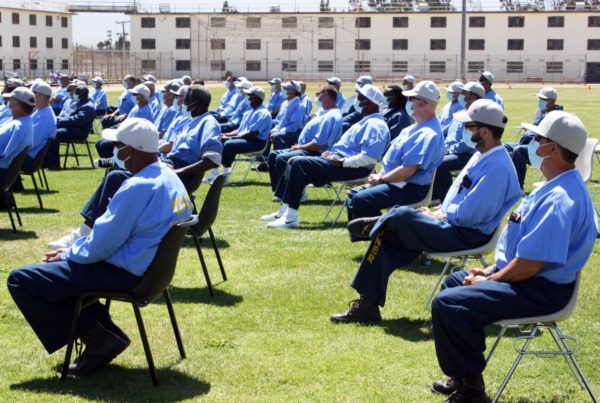The Texas law that bans abortions after approximately six weeks of pregnancy – and that allows private citizens to enforce that ban – will be reconsidered again by the Fifth Circuit Court of Appeals later this week. Texas abortion providers are looking for other avenues to block the law, known as Senate Bill 8, after the U.S. Supreme Court allowed legal challenges against it to proceed through the lower courts.
Joanna Grossman, Ellen K. Solender endowed chair in women and the law and professor of law at Southern Methodist University, joined Texas Standard to talk about what she expects to hear in the oral arguments. Listen to the interview with Grossman in the audio player above or read the transcript below.
This interview has been edited lightly for clarity.
Texas Standard: Why are oral arguments taking place at the Fifth Circuit Court of Appeals? Does that mean that the case has already been argued at lower court?
Joanna Grossman: This is a very strange posture. Normally, in this kind of a situation, after the Supreme Court has ruled, it would go back to the district court or the trial court to move forward. But in this case, Texas asked for the case to be sent back to the court of appeals, which they did because they think that’s going to be a friendlier court for their side – which is to try to enforce the law – and, in this limited way, prevailed – that the Supreme Court agreed that the case could go first to the court of appeals. And now we’ve got an issue to be decided at that point, but it’s really very, very unusual.
And what, exactly, is the issue that is being decided at this juncture?
The issue in the Supreme Court was whether or not there were any government defendants to be sued in federal court in this case. This law has an unusual design where it’s to be enforced only by private lawsuit and not by governmental officials, and that presents a variety of challenges given rules about federal jurisdiction and sovereign immunity – very technical concepts.
But the general idea is that the Supreme Court said there was a limited group of Texas officials who could enforce SB 8, and those are the people that license medical providers. And the question now is, do those officials actually have that power?
Now, what the Fifth Circuit is doing is holding an oral argument, another unusual step to decide who should decide whether those officials actually have the power – whether or not they should what’s called “certify” that question to the Texas Supreme Court, and let the state of Texas courts answer that question of Texas law, or whether it should go back to the federal district court.
In an ordinary case, the federal district court would get the first bite at all questions in the case. But at this situation, the Fifth Circuit is sort of shortcutting that and intervening in a way that’s very unusual.
Let’s say the plaintiffs win their case before the Fifth Circuit. Would that mean that SB 8 could continue to remain law in Texas?
If the plaintiffs win, the case should end up back in the district court. The district court was widely expected to prevent the law from being enforced because it does conflict with current Supreme Court precedents on abortion access. So, if the plaintiffs win, it should end up in the district court and there should be an injunction, probably relatively quickly, that would block further enforcement of the law.
On the other hand, if the defendants win – which is to say, if Texas wins this case – what would happen to SB 8 then?
If the defendants win this case, then what the Fifth Circuit would do is send the question to the Texas Supreme Court and then in effect, ask them, tell us how to interpret Texas law on the enforcement powers of the licensing officials. Now, what Texas says about that really doesn’t matter in the sense that the main purpose of that victory or the main effect of that victory, well, really, both, is that it would just simply delay the case, probably for several months.
And what Texas would like is for the case to be delayed as long as possible because during the delay, right now, the law is being enforced. It has been in effect for over four months now. And so the longer the delay, the longer the enforcement of the law, even though most people understand that it conflicts with Supreme Court precedent on abortion rights. And what they’re trying to do is run out the clock to June, when the Supreme Court will likely issue an opinion in [the Mississippi] abortion case in which it might say that there, in fact, is no abortion right anymore under the Constitution.














